One of the big questions, as Manchester United announced Ruben Amorim as their new head coach, is why they did not appoint him in the summer during the public courting of candidates to replace Erik ten Hag.
Amorim was available to clubs who wished to pay his release clause, and members of United’s hierarchy did hold talks with him around the FA Cup final. He even impressed them greatly with his personality and tactical ideas.
But there were considerations that kept him from entering the final reckoning, as The Athletic reported at the time. Those reasons can now be explained.
There were some internal discussions from a technical standpoint about his dedication to the back-three system that has led him to great success with Sporting Lisbon.
According to Opta, in every one of Amorim’s 188 league and European games at Sporting, he has used either a 3-4-2-1, 3-4-3, or 3-5-2. People at United wondered how that would map onto a squad built with a back four in mind and even work in the Premier League generally, a similar point that ushered Liverpool directors away from Amorim and towards Arne Slot when looking for a successor to Jurgen Klopp.

(Jose Manuel Alvarez/Quality Sport Images/Getty Images)
There was also a financial calculation due to Amorim’s release clause, which has come down over the course of his contract but was still significant. United could not get totally comfortable with paying a sizeable sum when they were not entirely confident that Amorim’s methods would translate from Portugal to England.
And so his name was kept from featuring prominently in reporting around Ten Hag’s proposed June exit. That perhaps suited United, who could continue to monitor Amorim with relative discretion. Chief executive Omar Berrada, in particular, regarded the 39-year-old highly for his record of winning two titles at Sporting after a 19-year drought for the club.
United spoke to several managers at the end of last season, progressing the furthest with Thomas Tuchel. But, ultimately, United executives eventually felt Ten Hag deserved another chance to prove himself with a new structure and refreshed coaching staff, and sticking with a manager through tough times chimed with the traditions of the club.
The call ultimately rested with Sir Jim Ratcliffe, while Sir Dave Brailsford and technical director Jason Wilcox were across everything. Berrada and incoming sporting director Dan Ashworth were also involved.

(James Gill – Danehouse/Getty Images)
But, four months on, those running United convened to discuss whether a change might be best after all.
At the executive committee meeting at INEOS headquarters in Knightsbridge on October 8, a contingency plan was laid out should results fail to improve under Ten Hag. Amorim was top of the list.
Sporting had won all their games in the Primeira Liga and were positioned in the automatic qualifying places for the knockout stage of the Champions League. United discussed alternatives but did not have conversations with any other candidate than Amorim.
Further background checks on Amorim’s style and relationship with his players had got those at the top of United enthusiastic about the prospect of bringing him to the club. They became confident his back-three formation could map onto the squad.
In the week United faced Fenerbahce, United gauged Amorim’s willingness to make the switch straight away, with Ratcliffe and Brailsford involved. Ten Hag and his team stayed in Turkey that Thursday night then flew to London and trained at Leyton Orient’s stadium before playing West Ham on the Sunday. The draw in Istanbul followed by defeat at the London Stadium were results viewed by United’s hierarchy as prompting the need for change.
Berrada and Ashworth told Ten Hag his fate at Carrington that Monday morning before United’s chief executive boarded a flight to Lisbon to inform Sporting of his club’s intentions. He dealt face to face with the Sporting president Federico Varandas this week, while Ashworth stayed in Carrington to support Ruud van Nistelrooy.
Observers have noted Berrada’s impact on this appointment.
Having worked at Manchester City for several years before joining United, Berrada would have been aware of succession plans for Pep Guardiola. Amorim was seen as a genuine contender to replace Guardiola, especially with Hugo Viana leaving Sporting to become director of football at the Etihad. But there is no guarantee Guardiola will leave City next summer, as Amorim will know.

Manchester United’s CEO, Berrada, joined from Manchester City (Ash Donelon/Manchester United via Getty Images)
Ratcliffe is a very engaged co-owner and has been hugely invested in this process, with meetings also taking place in Barcelona while INEOS Britannia were in the America’s Cup final. Joel Glazer is now more of a backseat co-owner, kept in the loop on developments but less opinionated on football matters.
Ratcliffe was determined for Berrada to secure a good deal during negotiations with Sporting. United knew in advance of Amorim’s €10million release clause, which came with a 30-day notice period. United say they are pleased at only paying an extra €1m on top of the €10m to get him almost three weeks early, with his start date November 11.
Sporting wanted Amorim to stay for important games against Manchester City and Braga, and United had empathy for him wanting to leave the club on good terms, given the season is under way.
United will, of course, have to reflect on their summer decision, which has led to an increased cost of sacking Ten Hag, to the tune of around £15million, and hiring a new manager at a time when some 250 jobs were made redundant as part of club-wide cost-cutting.

Recruitment was done with Ten Hag’s influence, and it would be wrong to think Manuel Ugarte, who played for Amorim at Sporting before joining Paris Saint-Germain, was bought with a reunion in mind.
The financial picture was partly why some felt Van Nistelrooy would get the full season as interim manager, given he was already in the building. Others believed that would allow United time to conduct a full process of various interviews.

(Nathan Stirk/Getty Images)
Van Nistelrooy has also made a very good impression as a No 2 during his weeks back at United, satisfying those at the top of his capability to guide United for matches against Chelsea, PAOK and Leicester.
Van Nistelrooy came to United because of Ten Hag, but he is his own man. He had robust deliberations with Ten Hag about substitutions, tactics, and training methods. Ten Hag’s strategy was to teach players through video sessions, Van Nistelrooy came with the perspective of an ex-player. He has a good bond with Casemiro, for example, a player who voiced a dislike for Ten Hag’s approach. Van Nistelrooy speaks Spanish and played for Real Madrid, and Casemiro shot him a smile and fist pump after Alejandro Garnacho’s goal against Leicester in the Carabao Cup.

Van Nistelrooy spoke with emotion at his pre-Chelsea press conference on Thursday, confirming that only at United would he have accepted an assistant role, due to his affection for the club, after being head coach at PSV Eindhoven. He said he wanted to stay on under Amorim and notably mentioned his contract, which runs to 2026. “I’m very motivated to stay here and help the club forward,” he said.
The make-up of Amorim’s coaches is still to be confirmed, but the Portuguese has insisted his tried and trusted staff accompany him to Manchester. It was one of his conditions to complete the deal. The incoming boss wants three first-team coaches to join him — Emanuel Ferro (45), Adelio Candido (28), and Carlos Fernandes (29) — and whether he is happy to have a figure of Van Nistelrooy’s standing in his backroom team remains to be seen.
Amorim is also said to want Jorge Vital, goalkeeper coach, to join him. But United appointed Jelle ten Rouwelaar in the summer and he is working well with the goalkeepers, in particular Andre Onana, who is having a very good season. So discussions are expected.

Onana has worked well with Ten Rouwelaar (Glyn Kirk/AFP via Getty Images)
The role of Andreas Georgson, who joined having worked with Wilcox at Southampton, is also not clear. It would not be a surprise if Rene Hake, closely aligned with Ten Hag, now departs. Darren Fletcher is rated highly. Amorim would also like Paulo Barreira to come as a sports scientist.
Amorim has been affected by the whole process.
At the end of Tuesday, after he had been grilled by journalists in the wake of a 3-1 win over Nacional, he confided in friends that the experience had exhausted him. Colleagues who have known Amorim for years observed he didn’t look his usual relaxed self during the press conference. That much was understandable.
He opened up briefly about the process on Friday night, after his team had seen off Estrela da Amadora 5-1 in Lisbon, telling reporters: “The only request I made (to the Sporting president) was for it to be at the end of the season and I was told that it wasn’t possible, that it was now or never. I had three days to decide on something that completely changes my life.
“A club came along that I knew that if I turned it down I wouldn’t have it in six months’ time. And I knew that, in six months, I wouldn’t be at Sporting. It’s the only club that I want and that moved me. There came a time when I had to decide and I did. Now I’m going home much happier because I have explained.”
His speed of the events of the last week has shaken those around the Portuguese club.
It had been a weirdly quiet atmosphere inside the Jose Alvalade Stadium on Tuesday for the quarter-finals of the Taca da Liga. In a statement shared on social media last week, several Portuguese clubs’ supporters’ groups, including Sporting, announced a boycott of that round of fixtures in Portugal’s equivalent of the league cup. The ultras did not take up their usual spot in the stands behind the goal and instead opted to stand either side, leaving a gaping hole.
Just before the game, Sporting fans, as is tradition, held their scarves aloft and sang the club anthem. But Amorim kept his head down, looking at the ground, hands in his pockets, looking somewhat shy and awkward, it was a strange moment. He didn’t celebrate any goals, instead crouching down on his haunches. He paced his technical area, kept giving instructions to his players, and occasionally clapped and pointed.

A group of fans tried to start a chant about Amorim but others whistled them silent. Some supporters are very thankful for all that he has done. Others are unhappy, not about the move to United, but the timing. They believe he should have finished the season.

(Zed Jameson/PA Images via Getty Images)
United could not countenance that, and they are pleased the agreement has been found quickly and discreetly. Amorim has transformed Sporting and the hope is he can do the same for United. He will not be 40 until January, and there is a belief he is ready to build at the club for a long period and develop young players.
His charisma is seen as a more natural fit to deal with the media at United than Ten Hag, and though that brings with it his strong opinions, executives are said to welcome the inevitable debates that will come.

(Photos: Getty Images/Design: Meech Robinson)

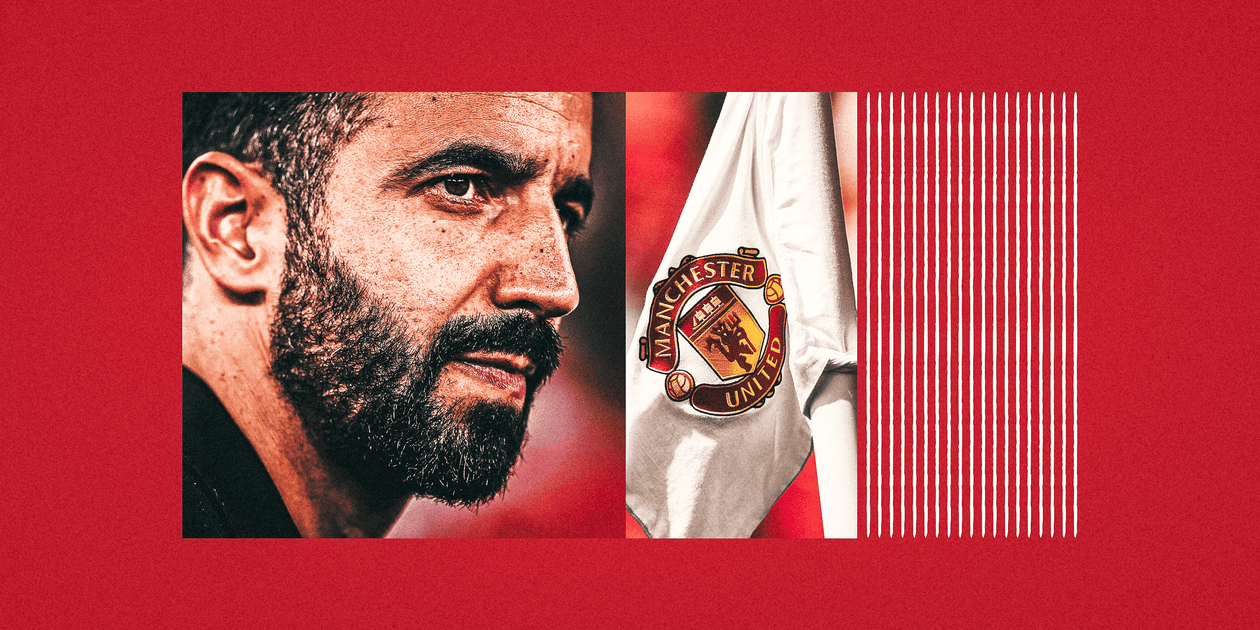
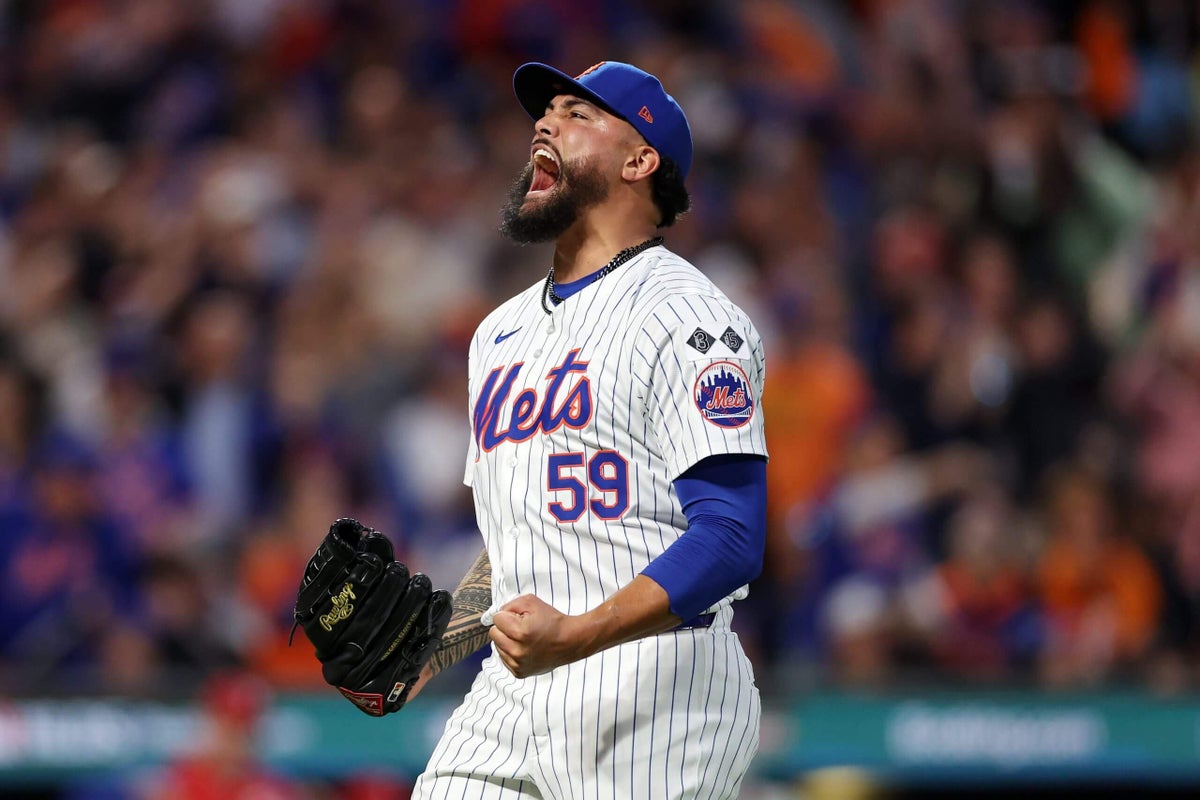
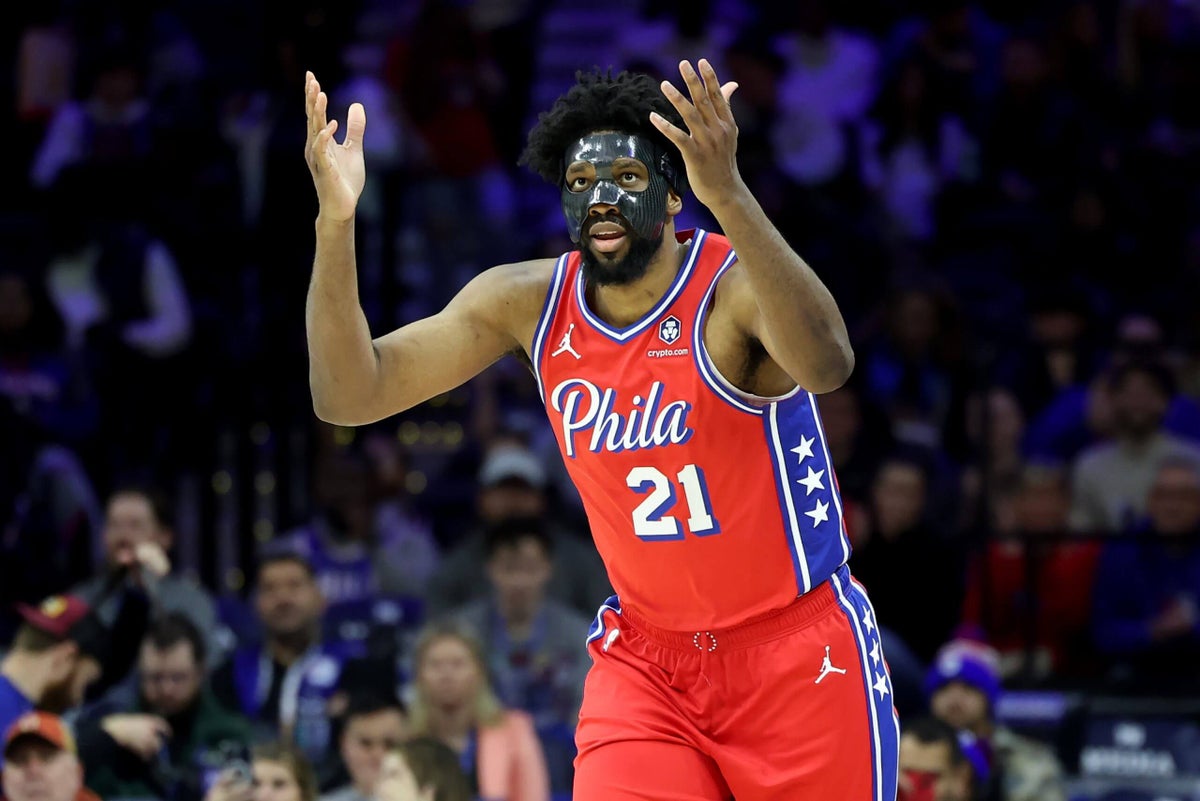
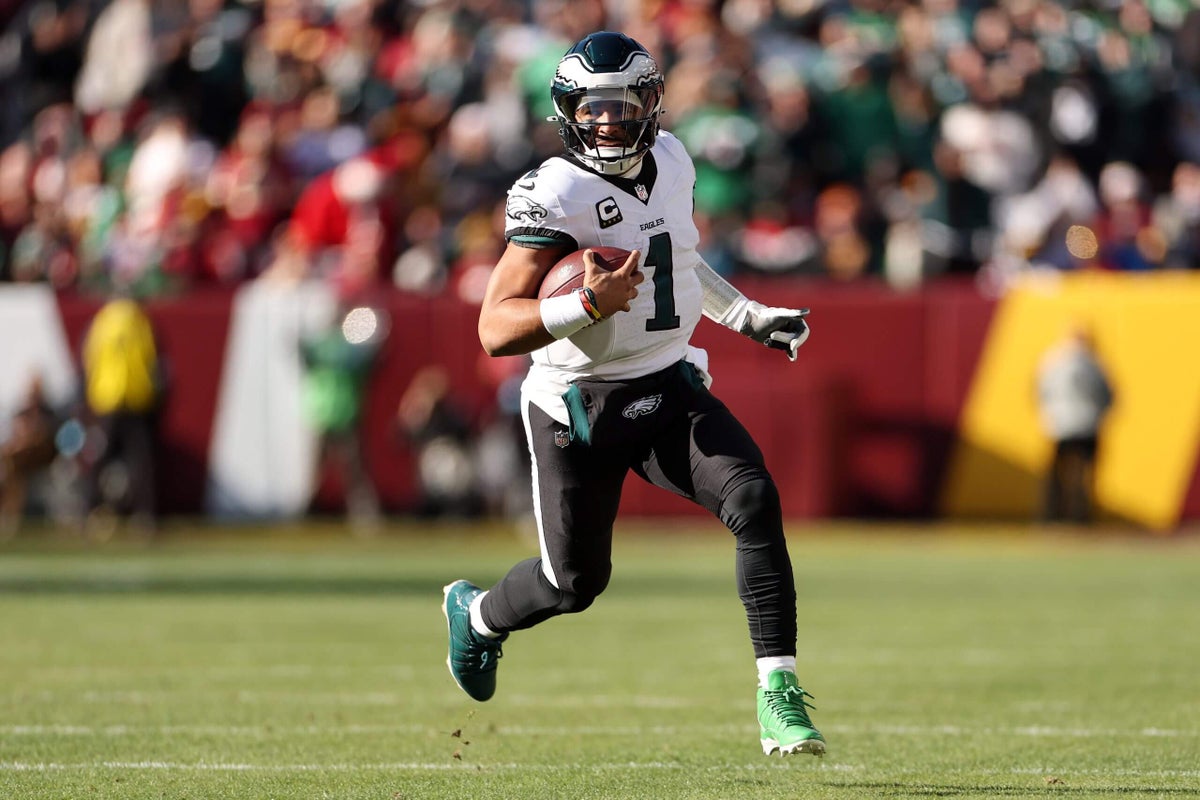
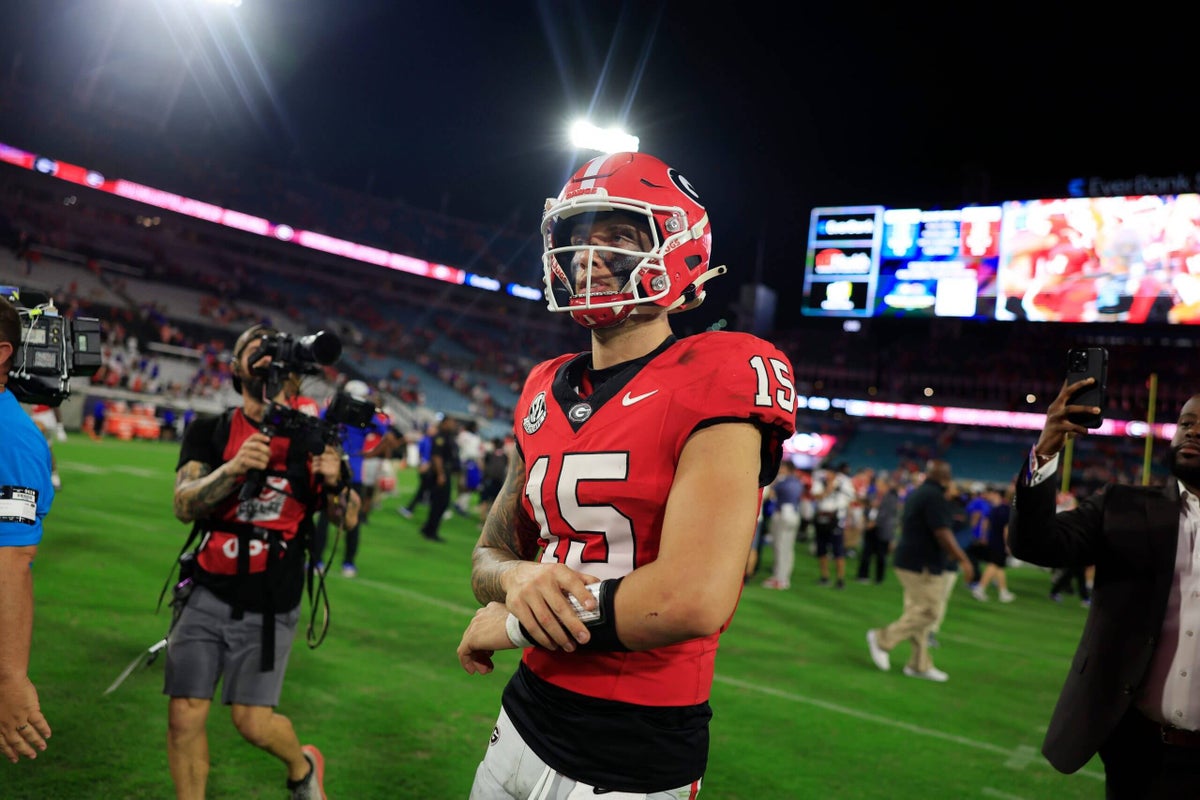
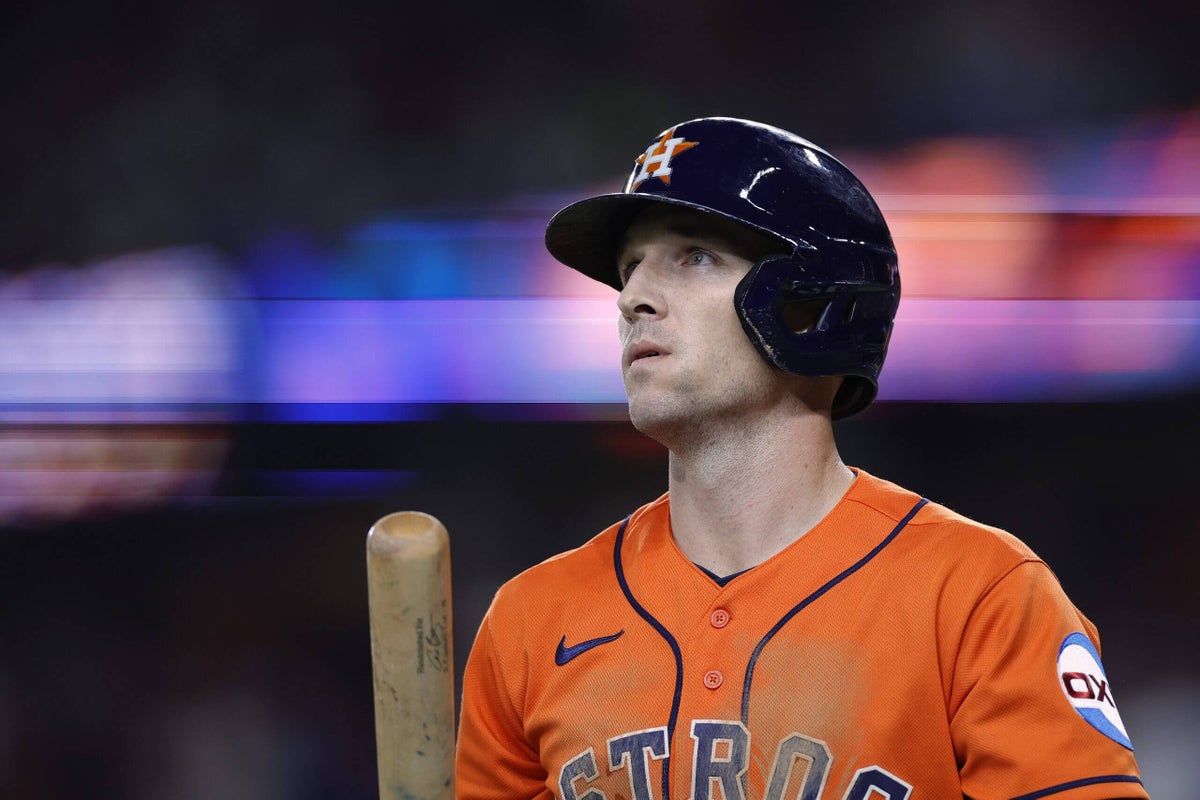
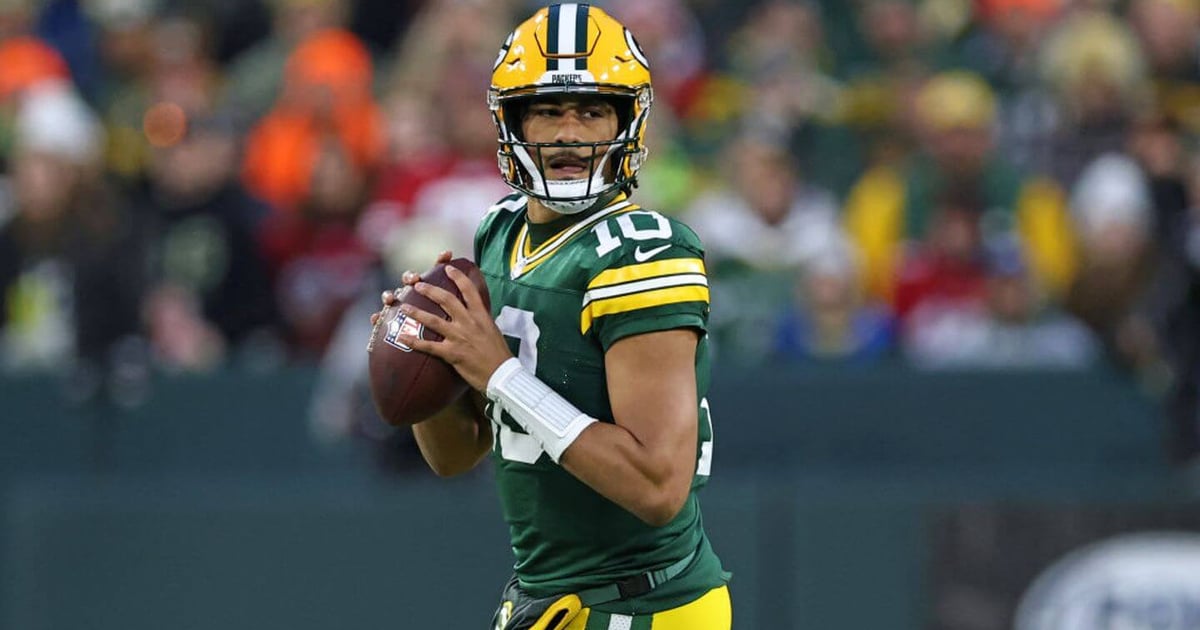
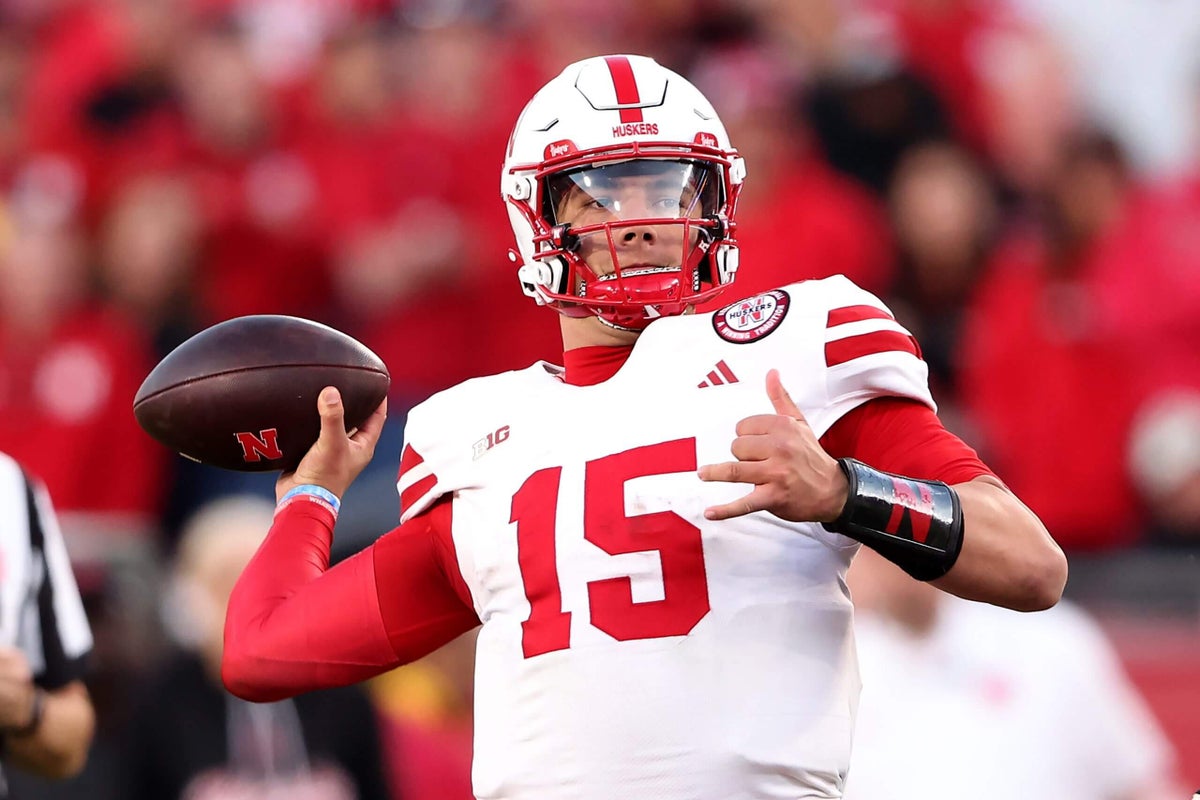
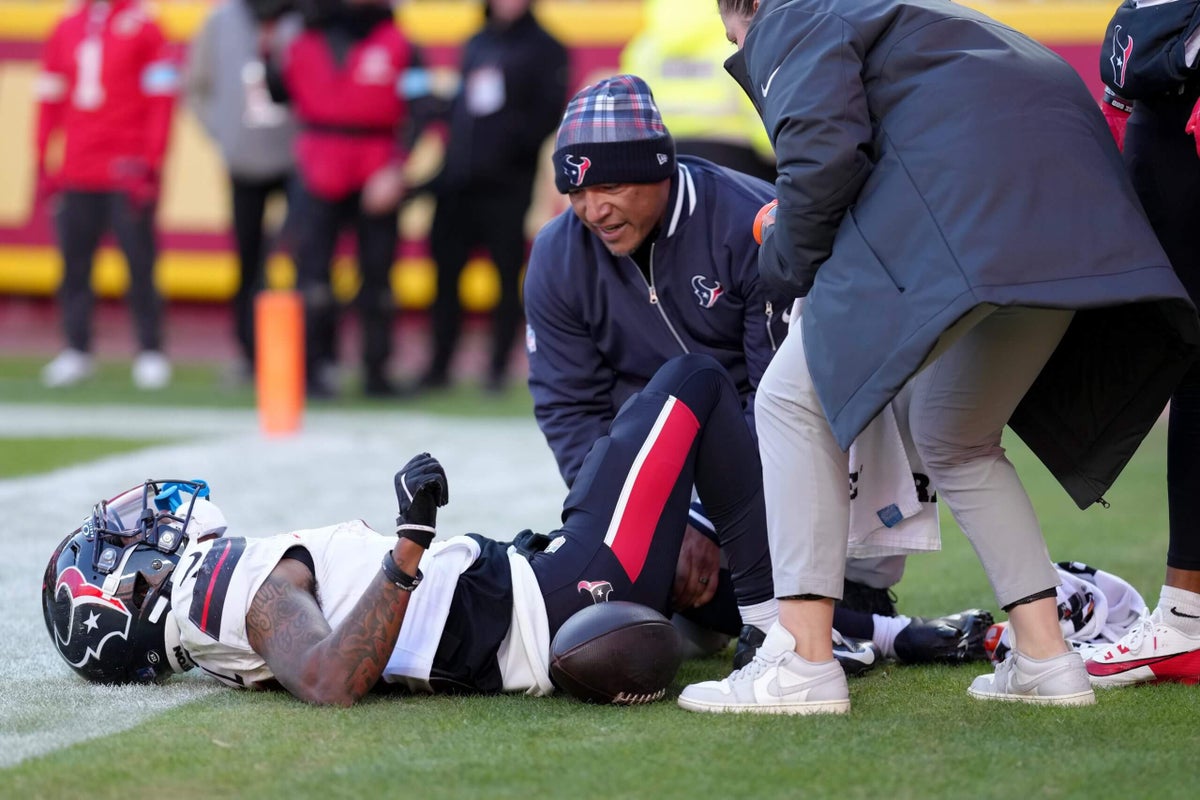
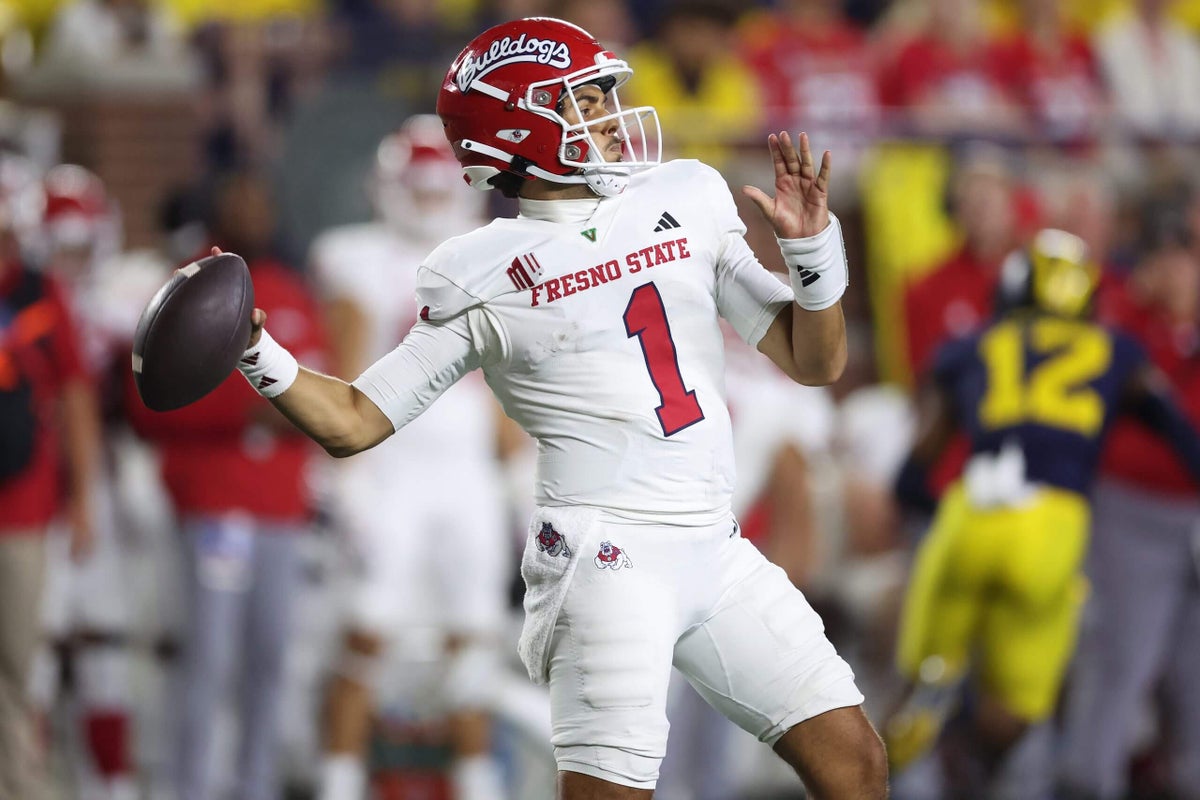
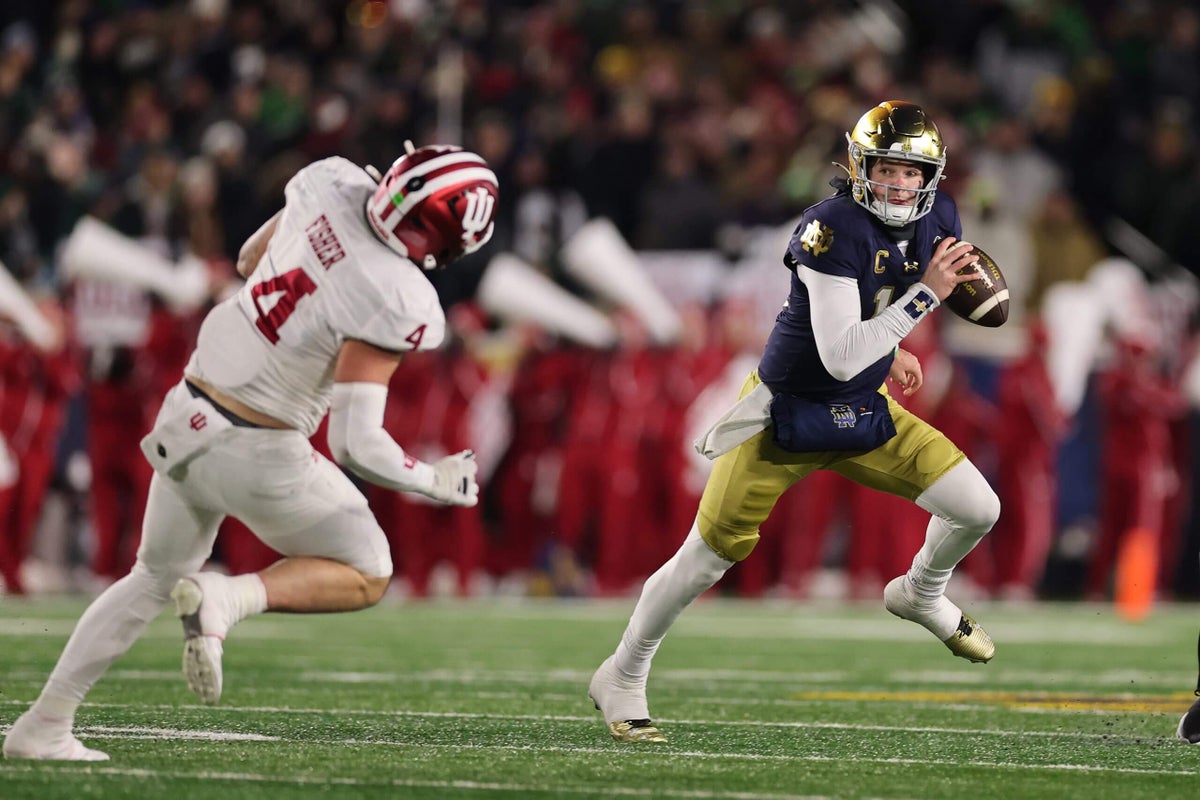

Leave a Reply